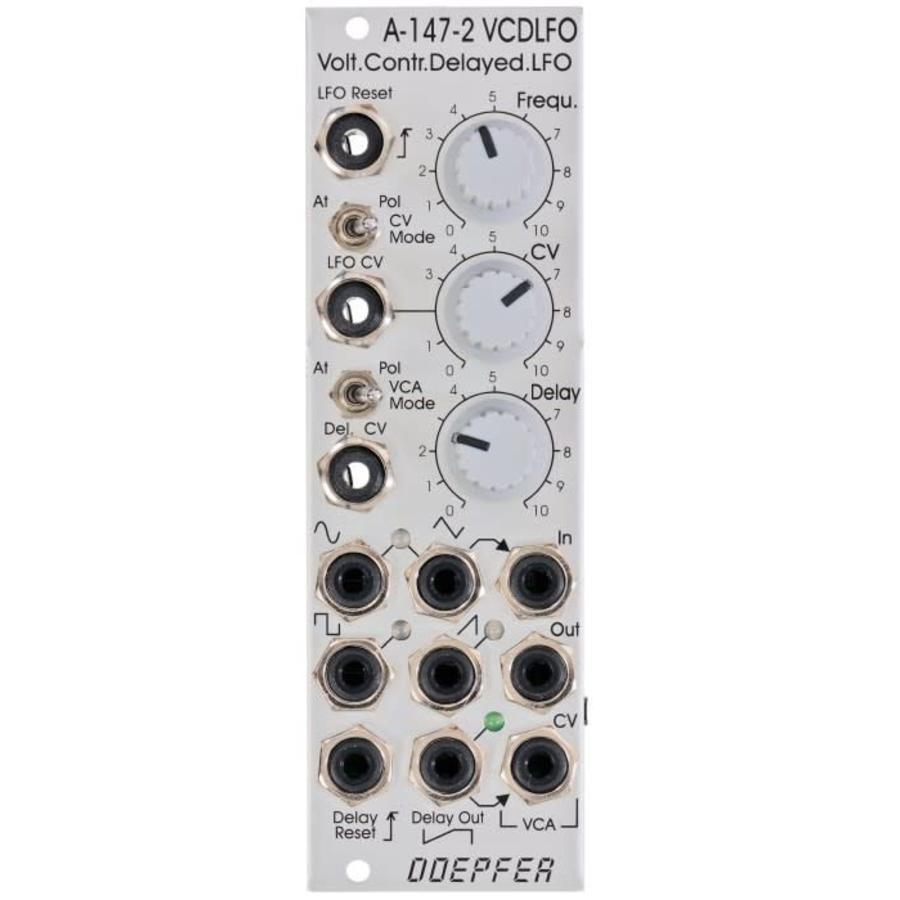Module A-147-2 is the successor of the VCLFO A-147 but offers much more features than the predecessor.
The module is made of three sub-units: VC-LFO, VCA and VC-delay.
The voltage controlled LFO has the waveforms Triangle, Sine, Sawtooth and Rectangle available and features a Reset/Sync input. Triangle/Sine and Rectangle are displayed by means of dual-color LEDs. The CV control can be switched to attenuator or polarizer. The frequency range (without external CV) is from about 0,005 Hz (i.e. about 3 minutes) to 200 Hz. In addition an ultra-low mode (up to 1 hour) can be activated by means of an internal jumper. The linear VCA can be switched to "normal" VCA or voltage controlled polarizer. In polarizer mode the VCA can be treated also a DC coupled ring modulator. The VCA of the A-147-2 has three sockets available: "In" (signal input), "Out" (signal output) and "CV" (control voltage input). The Triangle Output of the LFO is normalled to the VCA signal input by means of the switching contact of the "VCA In" socket. If another LFO waveform (or any other signal) should be processed by the VCA the corresponding signal has to be patched to the "VCA In" socket. The VCA can be used also independently from the LFO and the Delay CV. The third sub-unit of the module is a simple, voltage controlled envelope that has only the parameter "Delay" (or Attack) available. This unit generates a linear increasing voltage. The manual Delay control ranges - without external "Delay CV" - from about 5ms up to 2 minutes. By means of an external voltage applied to the "Delay CV" socket this range can be extended. The Delay output voltage ranges from about 0V to +5V. The rising edge of the gate, clock or trigger signal applied to the "Delay Reset" sockets resets the Delay output voltage to 0 V. But the Delay sub-unit can be used also independently from the LFO and VCA, e.g. as a voltage controlled waveshaper or for other applications where a linear increasing signal with voltage controlled steepness is required.
HP: 8





